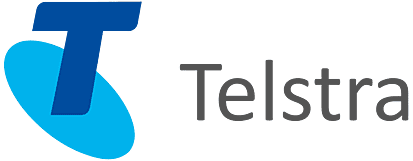The role of a Human Resources business partner (HRBP) in the logistics industry is vital in shaping the workforce to meet the sector’s dynamic needs.
With supply chain complexities and high demands on efficiency, HRBPs must go beyond traditional HR functions and take a strategic role in business operations. This blog outlines the essential steps HR professionals should follow to become effective business partners in logistics.
1. Understand the Logistics Business Model
To excel as an HRBP in logistics, it's crucial to grasp the industry's unique challenges, including supply chain optimisation, fluctuating demands, and tight delivery timelines. Familiarity with key logistics operations—such as purchasing, warehousing, inventory management, and transportation—enables HR to align workforce strategies with business objectives. HRBPs must also keep pace with advancements like automation and artificial intelligence that impact job roles and skills requirements within the sector (Phillips and Edwards, 2019).
2. Build Trust and Strong Relationships
An effective HRBP works closely with senior leadership and key stakeholders to foster trust and collaboration. In logistics, where operational efficiency and adaptability are critical, HR must develop strong working relationships to influence decision making positively. Establishing rapport with department heads ensures HR strategies are aligned with specific functional needs, such as talent acquisition for high-demand areas like warehousing and fleet management (Ulrich and Brockbank, 2005).
3. Emphasise Employee Development and Retention
Talent shortages in logistics are a well documented issue. HRBPs should focus on developing strategies that not only attract top talent but also retain skilled employees. Offering targeted training and career progression opportunities can reduce turnover and create a stable workforce capable of meeting industry demands. Implementing employee development programs tailored to logistics-specific roles—such as upskilling in warehouse technologies—helps in building a future-ready workforce (Brewster et al., 2009).
4. Understand Workplace Laws and Grievance Settling
Given the nature of the workforce in the logistics industry, which often includes casual, part-time, and shift based workers, it is critical for HRBPs to have a strong understanding of workplace laws. This includes compliance with employment standards, such as the Fair Work Act, awards, enterprise agreements, and regulations regarding overtime, leave entitlements, and workplace safety. Having the ability to negotiate effective workplace agreements and resolve grievances allows operations to flow smoothly, which in turn boosts employee satisfaction and retention.
5. Drive Organisational Change
The logistics sector is continuously evolving due to technological advancements and changing market and customer demands. HRBPs must lead change initiatives, such as the adoption of automation or transitioning employees between customer sites. This requires agility and a proactive approach to change management, ensuring that the workforce is not only ready for change but also engaged in the transformation process (Ulrich and Brockbank, 2005).
6. Focus on Employee Wellbeing and Safety
Safety is a priority in the logistics industry due to the physical nature of many roles. HRBPs need to ensure that health and safety protocols are enforced and that employee wellbeing is actively managed. This includes both physical safety measures and mental health initiatives. In high-pressure environments, burnout is a real concern, making the promotion of work-life balance and stress management strategies essential (Phillips and Edwards, 2019).
Becoming an effective HR business partner in logistics requires a combination of industry specific knowledge, strategic thinking, and strong interpersonal skills. By understanding the logistics business, building trust, focusing on employee development, and driving change, HR professionals can play a pivotal role in shaping a workforce that supports business goals.
Linq HR are Australian Employment and Workplace Specialists assisting organisations and employees be their best at work. Ph 1300234566.
References
Brewster, C., Brookes, M., and Gollan, P. J. "The HR Function and Business Partnering." International Journal of Human Resource Management, vol. 20, no. 3, 2009, pp. 517-533.
Ulrich, D., and Brockbank, W. The HR Value Proposition. Harvard Business Review Press, 2005.
Phillips, J., and Edwards, L. "Managing Talent in Logistics and Supply Chain Management." Supply Chain Management Review, vol. 25, no. 4, 2019, pp. 12-15.








